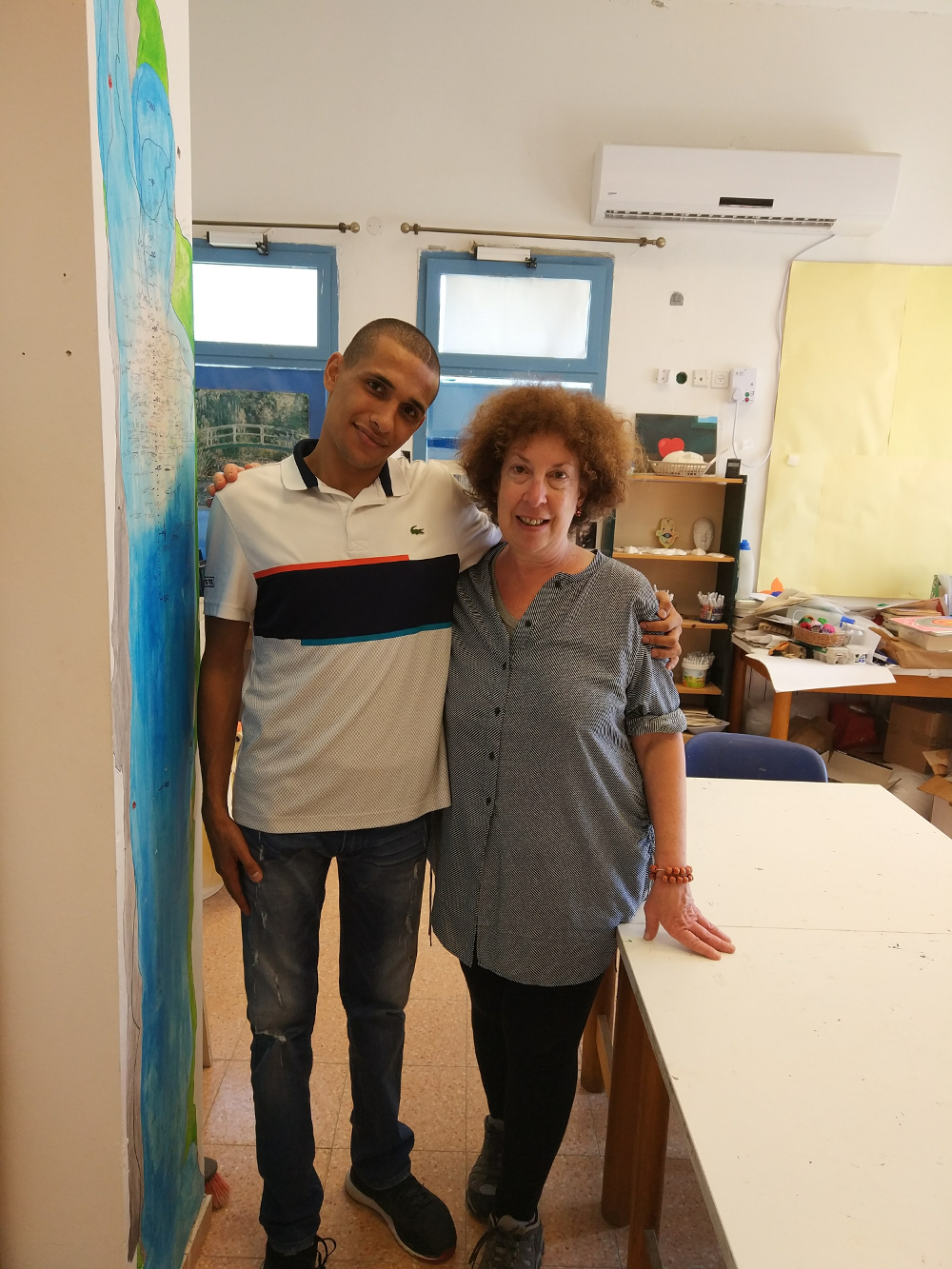Graduates
Over the past 70 years, close to 70% of the graduates of the Children’s Home and the Kemper Group Home have gone on to lead productive lives in the greater community. They always remember the dedication, patience, care, and love that helped turn their nightmares into dreams and gave them the tools to rise above their painful beginnings. Some keep in touch and return to the Homes for a visit. An example of this is a recent visit by a graduate of the Kemper Group Home who will be enlisting in the Israeli army in a few weeks. M. spent 4 years at the Kemper Group Home, during which he underwent a significant process that prepared him for his upcoming army service. In the last two years at the Home, M. volunteered to help Holocaust survivors. He would visit a Holocaust survivor at least once a week and keep her company. He would bring her food from the Home and together they eat and talk about life. The treatment M. received at the Home helped him to be able to forge this unique connection with the holocaust survivor. M. will be serving in a special unit in the army which helps soldiers deal with the military system and provides them with a supportive and targeted framework that encourages them to serve in the army.
 The Children’s Home also had a visit from a graduate who left the Home 8 years ago. He came with his wife and son and told us excitedly all about his life and what he has gone through since he left until today. From the interview with P.: The Children’s Home also had a visit from a graduate who left the Home 8 years ago. He came with his wife and son and told us excitedly all about his life and what he has gone through since he left until today. From the interview with P.:
“At first it was difficult here. It was hard to adjust… I wasn’t used to being with a lot of people in a big group. I got used to it, opened up to the counselors… from here I went to the Hana Hostel [Kemper Group Home], I was there a year, I adjusted to the Home, went to a school outside the Home, I’d come and go. Then my brother died… so I decided to return home. He was my older brother so I took upon myself the paternal role. We lived in Tel Aviv in the Shapira neighborhood. Shapira was a slum with a lot of crime. I deteriorated, I went in and out of jail, I went through some not so good phases. It was difficult… But I learnt a lot [at the Children’s Home]. I cooked; I knew how to cook at the Home. Sometimes when I needed to stop I would stop. I would always remember that I was good, and sometimes I was strong and sometimes weak and I would cry. At first when I went out into the real world I didn’t really understand myself, I wanted to show everyone who I was. When I was here at the Home I didn’t know people on the outside. [When I got out] I wanted people to know me, know who I was. It was a little hard. And then I started working. I’ve been working for 5 years… I slowly climbed up the ladder, like I was taught. At first I wanted to jump to the top of the ladder but I understood that that’s wrong and I slowly got to where I want to be. I have a kid, I have a wife, thank G-d.”
The staff that taught and cared for him while he was here was greatly moved to see how he’s grown up and started a family. The encounter was inspirational and reinforced in everyone the importance of the work that is done here at the Children’s Home.
|